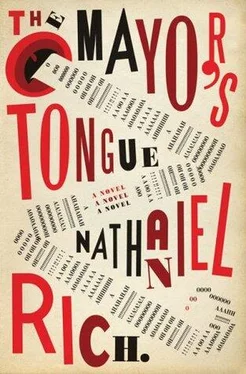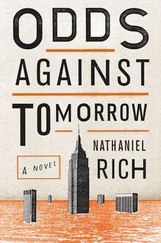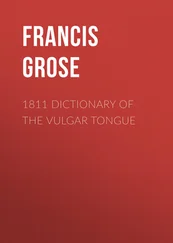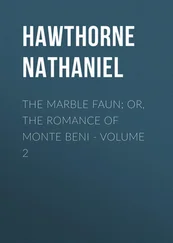"We're both very upset to hear you're leaving," says Agnes, looking pleadingly at her husband. "But given your circumstance, we understand why you have to do this. Don't we? We wish you well. Perhaps we'll come to visit?"
"Of course," says Rutherford. "Anytime. I believe Varese's house has a second bedroom, and when you come I can take you around the city. Dinner will be on me!"
"Bastard," whispers Mr. Schmitz. His gaze is still frozen.
"Darling, did you hear what Rutherford said? We can go on a trip together to see him anytime. I can barely remember when we last went on vacation."
"Mr. Schmitz," says Rutherford, "I don't expect this to disrupt our normal pattern of conversations. I still plan on our speaking every day, at the same time, six o'clock, and I will adjust my sleep schedule accordingly to account for the time difference. Or if phone calls are not convenient, we can mail letters back and forth."
Rutherford moves his head to one side and then the other, to see if that will alert Mr. Schmitz from his catatonic stupor. It does not. Mr. Schmitz continues to stare at Rutherford, his eyes open but unseeing.
"Do you even hear me talking to you?" asks Rutherford, his voice soft with guilt.
Mr. Schmitz does not move but his fork starts chipping specks of his dish across the table. Other diners look over. Agnes smiles and nods at them, as if to offer assurance that her husband is not having a seizure. Rutherford waves his hand in front of Mr. Schmitz's face. A piece of green noodle inches slightly out of one nostril.
"Man, are you blind?" he shouts.
Mr. Schmitz comes to all of a sudden: the noodle is sucked back up his nose and the fork flies across the table and into the wall. He steadies himself and shuts his damp eyes. He buries his chin deep in his chest.
"This," says Mr. Schmitz, "is a blow to end all blows."
"I'm so sorry, friend."
"Bastard," Mr. Schmitz whispers. "Bastard."
Dear Dad, Just a note to say that I've arrived in Milan safely. With several hours until my train to Trieste, I decided to have a snack at Piazza San Babila. It's even brighter and busier than the day we were last here together — what, when I was fifteen? The last time you traveled to Italy. They've built a new fountain, very modern, in the middle of the piazza. It's shaped like a pyramid with a large iron ball balanced on its point. The water flows down the sides of the pyramid and collects in a shallow moat, which leads out in a narrow canal, beneath a grating across the piazza — like an underground river. It resurfaces in a diamond-shaped pool.
The people hurry back and forth, speaking a hundred different languages and bouncing off one another in their excitement to get wherever they're going. Everything is charged with life. A young Arab boy just tripped onto me and nearly toppled into the fountain. When his mother made him apologize, he took my hand in his and kissed it.
Traveling alone is nice but I look forward to seeing my friends again, both the old and the new.
All my love,
A
Dear Dad,
Trieste is cloudy and festive: the 70th annual international Esperanto conference is in town this week. I haven't seen Connie yet, but my old friend Poldi, the espresso maestro at Caffè San Marco, heard that he had been spotted with members of Trieste's Esperanto Association at Castello Miramare. The gruff gentleman at the front desk there had not heard of him, but I will continue to search for him along the waterfront and at the conference. I'll find him soon — I'm positive I will.
Daddy, don't you just love this postcard? So "bel paese." Do you see that sullen boy, standing behind the donkey? The one on the right, with the sword in his hand? He reminds me of someone, but I can't think of who — someone I met with you? He cuts a valiant figure but I can't tell whether it's just a pose or whether he's about to embark on some noble quest — to free a band of indentured servants, say, or perhaps to rescue his true love from a castle prison.
I'm staying with Frank, by the way, in case you'd like to send me a letter. He's busy assisting with the conference, but he sends his "dearest, rarest, regards" to you. Che carino! I'll write again soon, I hope with news of Connie.
All my love,
A
A tremor stirs the mattress. Agnes sits up abruptly and pulls the chain on the bedside lamp.
"What is it, my dear?" says Agnes.
"Turn off the light," moans Mr. Schmitz.
She turns off the light.
"I'm sad about Rutherford," says Mr. Schmitz.
"Well. You have been friends for so long. I'm sure he'll be back soon."
"I don't think he's ever coming back."
"You may be right," sighs Agnes.
Mr. Schmitz doesn't respond though his face is preoccupied.
"Why do we only talk in the middle of the night?" says Agnes.
Mr. Schmitz reflects on this for a minute in silence.
"I suppose that's so," he finally says, and moves his frame a quarter-revolution, a disturbance that pries a tremulous squeak from the ancient box spring.
"Why don't I heat you up a glass of milk?" asks Agnes. She is already halfway to the kitchen.
"I wouldn't come back," says Mr. Schmitz, "if I were him."
"What's that, darling?" Agnes is in the kitchen, where the electric stove is clanking loudly to life.
"I said, Extra sugar in the milk, Agnes."
"Whatever you like, dear."
Eugene had no reason to stay any longer at Abe's apartment except to await news from Sonia. He had already stacked and organized every book in Abe's collection; to the top of each shelf he had affixed little green library lamps that cast meniscus-shaped light down onto the books below; he had even organized Abe's voluminous research files. He had assumed that after Sonia left, Abe would ask him to help with his writing in the same way, but it hadn't happened. There were moments when Abe would look up from his desk in confusion, as if he expected his daughter would run over to assist him with some problem. Then he would see Eugene and, with a quiet groan of resignation, slump back to his work.
Abe was working less, however, and his naps grew longer and deeper. Eugene began to take liberties with his official duties. He would sometimes tiptoe around to the back of Abe's chair where he kept his gray sheepskin slippers, and slip them on. Then he'd curl up on one of the leather chairs and read an Eakins novel in some old edition. One afternoon, when Abe had seemed particularly depressed and entered a deep slumber, Eugene reached above Abe and took from the shelf there his most prized possession: a first edition of Eakins's novella, Every Man for Himself and God Against All . He glanced anxiously at Abe, but the weary man was snoring now, the dentures slipping loose from his gums.
Eugene had never read the novella before — it was out of print, and not held in particularly high regard — but from the first page, he was happy to see that it was typical Eakins: a strange reality that bordered on fantasy, an exotic locale, larger-than-life characters. The novella told the story of Turk, a young thief in Ireland at the turn of the century, who breaks out of prison to search for his true love, Alcida. Without food or drink, he wanders in search of friendly civilization. But there is no one, as far as he can tell, for hundreds of miles, and he soon finds himself in the middle of a vast, desolate moor. At dusk he takes shelter in a crumbling monastery, building a fire out of remnants of a splintered prie-dieu and sleeping between two capsized pews.
Before reading further, Eugene reexamined the postcard from Sonia that he kept in his jacket pocket at all times. It was her most recent correspondence, sent nearly a month earlier from Trieste. Eugene flipped the card over and reread Sonia's lines: "I'm sick of codes," it said. "I miss you." He had fired off three letters in response, but had received nothing in return, not even another postcard. He read through Sonia's postcard again, hoping to decipher some hidden meaning. It was signed "Triste in Trieste." This frightened him but he didn't know what he could do about it.
Читать дальше












